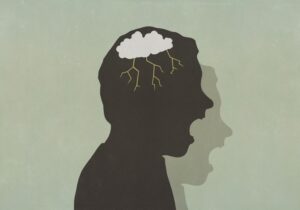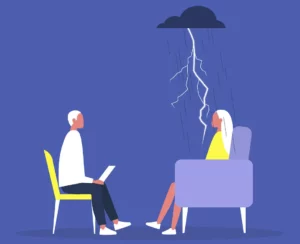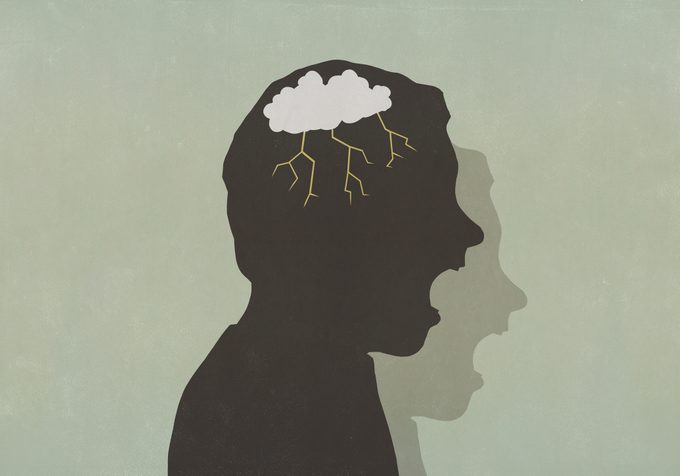Do you ever feel like you’re just angry all the time? Like no matter what you do, you can’t seem to shake that feeling of anger? If so, you’re not alone. Millions of people deal with anger issues daily. In this blog post, we will explore the causes of anger and further offer some solutions on how to deal with it.
Contents
Why Do I Feel Angry?

Anger is a vital part of the emotions we experience in our day-to-day life. Everyone experiences this emotion due to a variety of reasons. Based on certain situations, it can also be healthy to express anger as a response to disrespect, betrayal, or outrage.
However, it is the intensity, frequency, and consequences of this anger are what should be measured and tracked when talking about anger issues. It is needful to observe these patterns to determine the cause of these emotions, which will further shape the plan and course of treatment to manage these issues.
What Causes Anger?
There is no one-fit-for-all answer to determine why one might feel angry. There are various internal/external/environmental factors and reasons which may also build up undetected anger issues. Some commonly observed reasons for underlying anger include events such as:
- Witnessing a traumatic event
- Losing a loved one
- Facing a personal loss
- Encountering a bad memory from the past
- Betrayal or infidelity
- Being subjected to abuse/violence
- Genetic tendencies
- Loss of control/authority
- Unidentified emotional/environmental triggers
- Feeling unloved or not cared for
- Social/political/personal injustice
- Failure at work/school
- Loneliness and social/emotional isolation
- Financial difficulties
- Lack of sleep
- Undiagnosed disorders like PCOS, OCD, bipolar disorder, ADHD, substance addiction, and personality disorders causing hormonal imbalance
How Does Anger Effect Me?

When left unnoticed and ignored, anger can build up to cause problems. These problems may affect our daily life routines, and physical/mental/emotional health, as well as difficulties managing our surroundings.
Physical Effects
- Increased headaches
- Chest pains
- Sore and tense muscles
- Clenched jaw
- Unexplained hot flushes
- Hypertension
- Cardiovascular issues
- Being constantly sweaty
- Stomach aches
Mental Effects
- Restlessness
- Distractions
- Being easily irritable
- Difficulties in concentration
- Anxious, often racing thoughts
- Temper tantrums
- Inability to relax
- Increased stress levels
- Insomnia
Social Effects
- Strained personal relationships
- Increased arguments and fights
- Breaking things
- Snapping out on people
- Anger explosions for no reasons
- Disparities in work/academic challenges
- Feeling easily overwhelmed
- Trouble with managing authority/leadership roles
- Inability to work in teams/groups
How Can I Deal With Anger?

If you feel like your anger issue has severe impacts on your daily life or affects your relationships, there is help available for them. It can either be by seeking help from a mental health professional or practicing self-help techniques and tricks. We will look at both these alternatives in detail.
Seeking Professional Help
Anger is a part of the huge spectrum of human emotions. It is an instinct to experience the existing range of feelings through phases and changes. Anger is no exception. Although it is not a “bad” emotion, excess of it is one of the most prevalent symptoms in a variety of clinical mental illnesses, including addiction, personality disorders, mood disorders, learning disabilities, etc.
When seeking therapy for anger issues, the main goal is to identify the client’s triggers and come up with coping strategies to manage emotions. Though anger issues can not be fully “cured”, one can learn to manage them in a healthy, productive way. Sometimes medication may also be recommended in a combination of therapy for maximum efficacy.
The most commonly practiced therapeutic techniques used for anger counseling include:
- Cognitive behavioral therapy (CBT)
- Expressive arts therapy
- Group therapy
- Play therapy
- Psychodynamic therapy
Most commonly prescribed medication for anger includes:
- Prozac
- Celexa
- Zoloft
Disclaimer: Medications should be taken as a second-level treatment. It should not be taken without a proper prescription from a medical practitioner.
Self Help Tips
Some self-help tips for managing anger include:
- Identifying your triggers: What are the things that set you off? Once you know what your triggers are, you can try to avoid them or be prepared for them.
- Practicing relaxation techniques: This can help you calm down when you’re feeling angry. Try getting in touch with your hobbies or activities that bring you joy.
- Exercising: Exercise can help reduce stress and tension. It’s also a great way to release all that built-up energy. Physical activity also helps in producing endorphins, adrenaline, and dopamine, which help in mood stabilization.
- Talking to someone: Sometimes it helps to talk to someone about what’s making you angry. They may be able to further offer some helpful perspectives and divert your mind.
- Meditation: It is another great way to focus on your breath and relax the mind and body. There are many different types of meditation, so find one that works best for you.
- Deep Breathing: Taking deep breaths is a simple but effective way to calm down when you’re feeling angry. It also helps to slow down your heart rate and clear your mind.
- Redirect your self-expression: Try to channel your angry energy into something self-indulging, creative, and calm. For example, instead of yelling or screaming when feeling angry, try singing along to your favorite song
Conclusion
If you’re feeling angry all the time, it’s important to understand why. Once you know the cause of your anger, you can start to take steps to deal with it healthily. If you’re struggling to manage your anger, don’t hesitate to seek professional help. A therapist can further assist you in developing healthy coping mechanisms and working through the underlying issues that are causing your anger.
A Word From Therapy Mantra
Your mental health — Your psychological, emotional, and social well-being — has an impact on every aspect of your life. Positive mental health essentially allows you to effectively deal with life’s everyday challenges.
At TherapyMantra, we have a team of therapists who provide affordable online therapy to assist you with issues such as depression, anxiety, stress, workplace Issues, addiction, relationship, OCD, LGBTQ, and PTSD. You can book a free therapy or download our free Android or iOS app.


